Campers Guide to Essential Oil Bug Repellent: Mosquito, Tick, Flea
Heading outdoors but hate those biting insects? Me too. In this campers guide to essential oil bug repellent you’ll learn what oils repel which insects, including mosquitoes, ticks, and fleas.
You’ll also find an insect repellent essential oils list – to know which essential oil best repels your arch-nemesis. And, of course, we include an easy recipe so you can make your own at home.
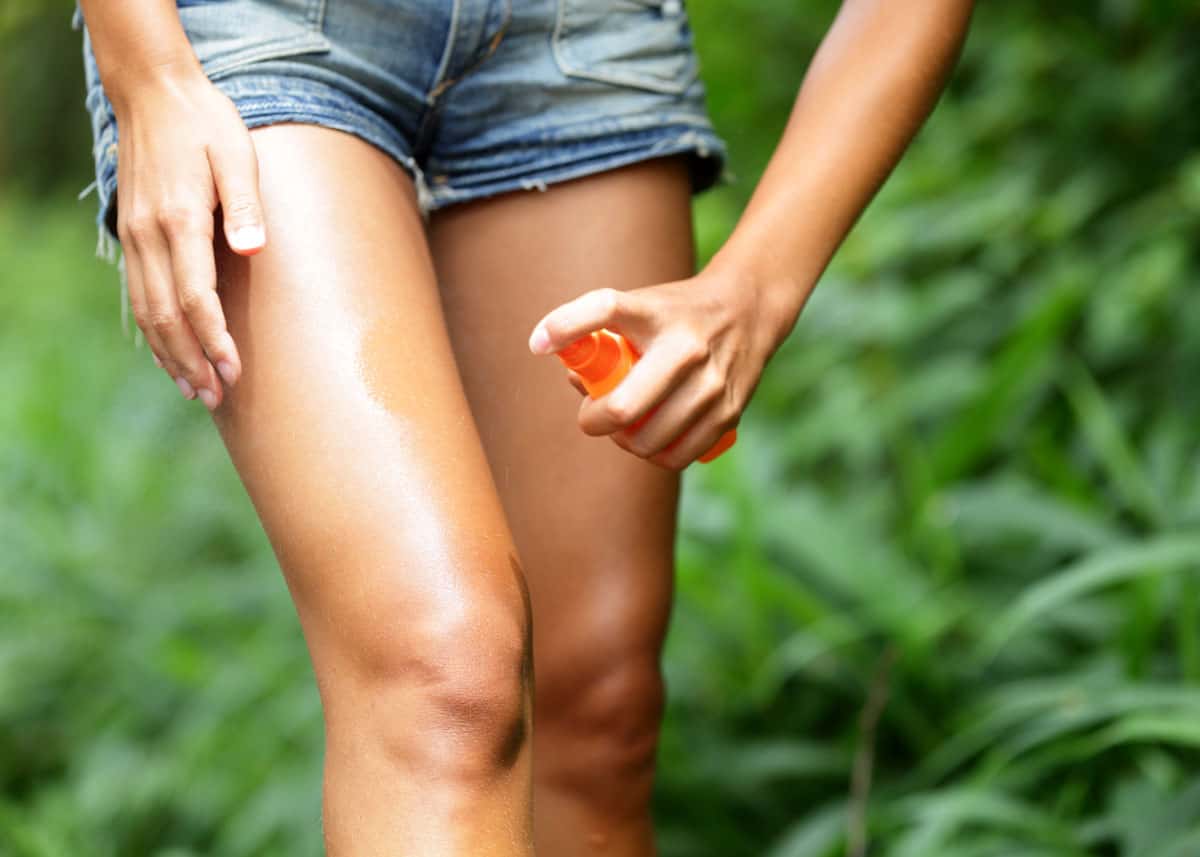
Campers Guide to Essential Oil Bug Repellent
A lot of families enjoy long summer days spent camping, hiking, visiting a lake or just sitting on the front porch talking. Being outside in the fresh air enjoying BBQ’s with friends or picnics at the park is glorious.
That is until your relaxing sunset turns into a slap-fest of frenzied hands trying to get the culprit of that sharp bite before it strikes again.
Nothing ruins your sunset or BBQ quicker than returning home with legs covered in bites, swelling and itching like crazy.
So how do you stop them without slathering on bug repellents full of toxic chemicals?c
By using something natural.
Repel Biting Insects With Essential Oils
Natural products are growing in popularity daily as parents realize how many toxins are in a lot of commercial products. The last thing you want is to be absorbing carcinogens through your skin, right?
Thankfully there is a non-toxic, all-natural way for you to enjoy the outdoors while deterring mosquitoes, gnats, and other insects you don’t want near you, your family, or your pets for that matter.
In this guide, we’re going to look at the best essential oils that act as insect repellents so you can keep an eye out for them (on ingredient lists). And then help you choose the right product for your family.
And for those more adventurous souls, with the information provided here, you’ll have the confidence to make your own.
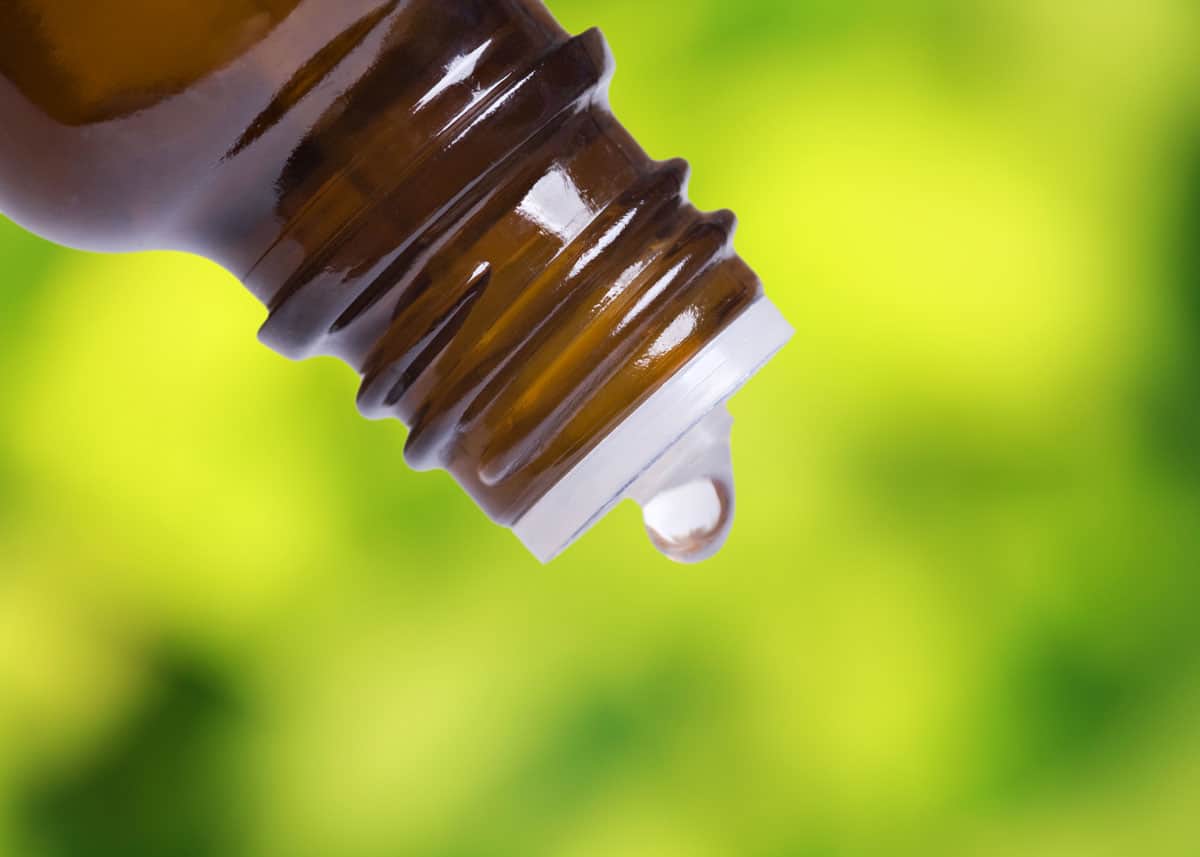
And the best thing is – they smell divine! I know I would much prefer to smell like lavender or lemongrass than toxic chemicals! Plus, being natural they are softer on your skin for those with sensitive skin issues and safe enough for your children and fur babies alike.
As we know, children often put things in their mouths they are not supposed to – so the last thing you need to worry about is if they are getting poisoned by what’s on their skin.
If it’s all 100% natural and organic then your stress levels will decrease and they can go back to being kids. Phew!
Which Essential Oils for Which Bugs?
There are a lot of great products available (already made) in the marketplace.
One thing they all have in common is some essential oils repel certain insects better than others – like citronella is renowned to do with mosquitoes.
Here is a list of what repels what, which should help you make a good choice.
- Mosquitoes: Citronella, Cedarwood, Lemongrass, Peppermint, Eucalyptus, Lemon, Geranium, Basil, Lavender, Thyme and Clove.
- Fleas: Cedarwood, Tea Tree, Citronella, Eucalyptus, Lemongrass, Orange, Lavender, and Pine.
- Ticks: Lavender, Lemongrass, Cedarwood, Geranium or Rose Geranium, Eucalyptus.
9 Insect Repellent Essential Oils List
Now that we’ve covered the basics, let’s discuss the most common essential oils used as insect repellents and their qualities.
The ones marked with an *(asterisk) are pet-friendly and recommended by pet owners and vets to help soothe your little four-legged friends.
- *Lavender (Lavandula angustifolia): One of the best natural insect deterrents against fleas and ticks, its aroma also soothes the soul as well as soothing areas irritated by flea bites. Safe for children and pets alike, it won’t do any internal or external harm if ingested. Due to its sedative properties, it is also ideal to include as a calming effect. Easily blended with a lot of other essential oils.
- *Geranium (Pelargonium graveolens): Excellent for deterring and repelling ticks, it also works for fleas and lice as well. Not only does it smell great but it helps aid in skin care and aid with inflammation and irritations so it’s a good choice for those with sensitive skin.
- *Cedarwood (Cedrus atlantica): One of the powerhouses known as a flea and mosquito deterrent through the ages. It excels at repelling all the nasty biters you want to keep away from your kids. A true natural insecticide, it’s blended well with other oils and an all-rounder deterring almost anything.
- *Lemongrass (Cymbopogon citratus): So powerful only a few drops are needed, it is one of the most effective natural insecticides making it one of the most commonly used of all essential oils. Plus, it smells great!
- *Eucalyptus – lemon or narrow leaf (Eucalyptus citriodora or radiata): Awesome for deterring mosquitoes, the Aussies swear by it, in fact, it’s so powerful that even scrunching up a leaf and rubbing it on your skin is effective! Its strong antibacterial, antiseptic, and anti-inflammatory properties help keep nearly every bug out there at bay as one of nature’s most effective natural pesticides and bug repellents. You may attract a few Aussies though.
- *Tea Tree (Melaleuca alternifolia) and Lavender Tea Tree (Melaleuca ericifolia): Now this is a strong one so use it carefully. One of nature’s most lethal bug repellents it’s so strong it can cause temporary paralysis in dogs so if you are making an insect repellent for your pets, you’d be wise to use the milder Lavender Tea Tree which works just as well but helps keeps Fido safe.
- Lemon (Citrus Limon): Known to be invigorating, cleansing, and purifying, this essential oil also has one of the highest and strongest anti-microbial characteristics of all essential oils. Also, strong in antibacterial qualities and antiseptic it helps deter most bugs and is safe if ingested.
- Citronella (Cymbopogon nardus): This is one everyone has heard of and a citronella candle is found on many a back porch to help ward off mosquitoes. It is particularly effective on the species of mosquito that carries Yellow Fever. It is also great at deterring fleas, body and head louse and lice. It is so effective against insects and creepy crawlies, that it’s reputed to kill intestinal worms when taken in small doses. Of course, please consult your doctor before intentionally ingesting any essential oil. As this oil is quite powerful, if used in high concentrations on sensitive skin it may cause a reaction.
- *Peppermint: The medicinal properties of Peppermint have been heralded through the ages and some say it’s the oldest medicine known to man. More than just an insect repellent, peppermint’s anti-viral, anti-bacterial and anti-fungal properties make it an excellent base for a homemade insect repellent that repels almost anything, including mice. Child and pet-friendly.

More reading: 14 All Natural (Homemade) Insect Repellents
Things to Know Before Buying Essential Oil Bug Repellent
Now that you know which oils are better at deterring which particular insect or bug you are trying to repel, you should know how to spot a good essential oil.
Not all essential oils are equal. There are good essential oils that are kind to your body, pure, and safe. Then there are brands that are not pure, cheap, mixed with synthetics, GMO’s and other artificial substances and can cause irritations and reactions, especially to those with sensitive skin.
The best oils are extracted correctly by experts in herbology, pure, not mixed with anything and usually, 100% organically grown so they bring a lot of additional health benefits (and usually smell better).
More reading: How to remove a tick head after the body is gone.
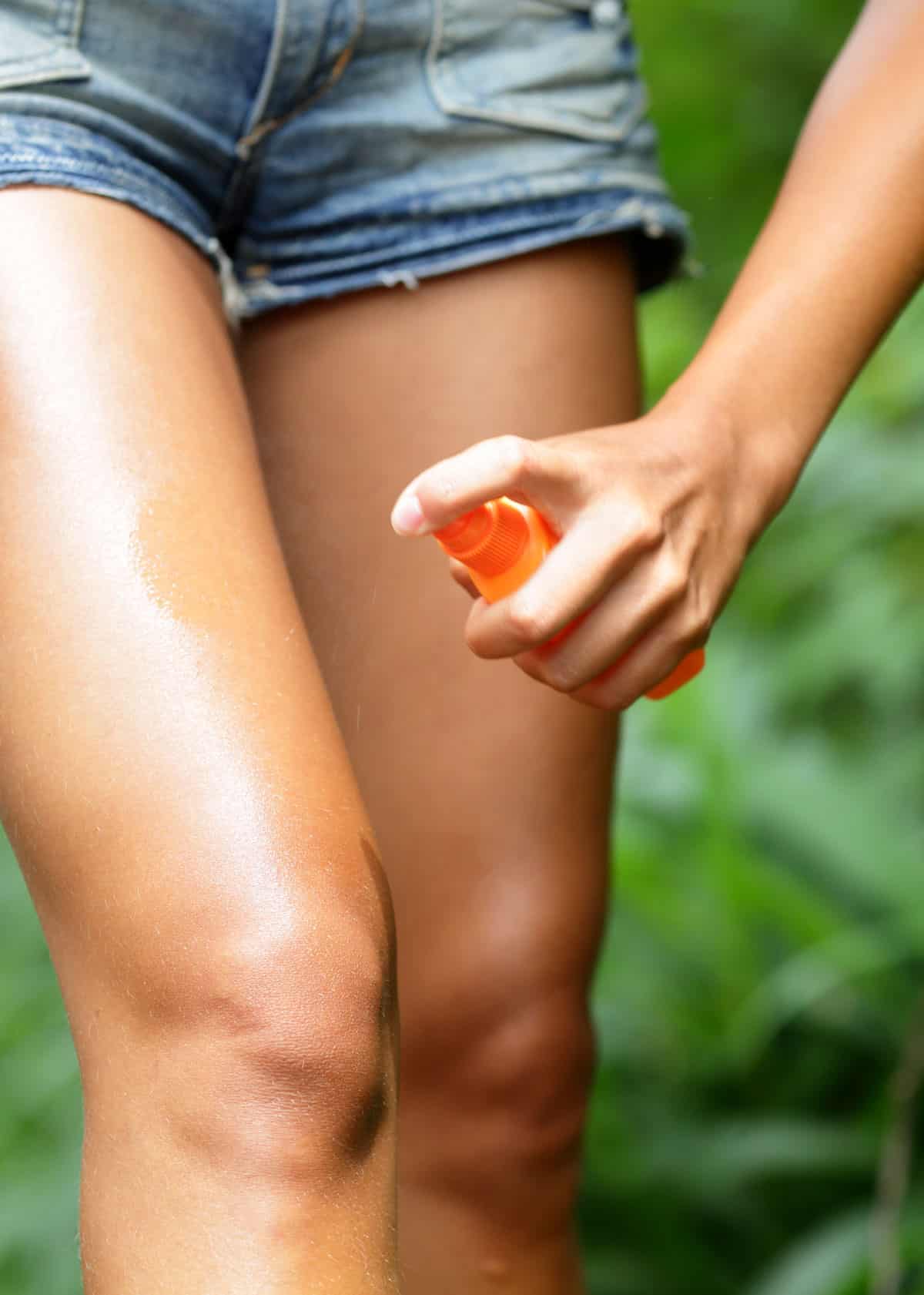
3 Common Questions About Essential Oil Mosquito Repellent
Here are answers to commonly asked questions about all the best insect-repellent essential oils and their properties.
Later we’ll share some recipes so you can make your own essential oils bug repellents.
1. What do essential oils smell like?
The essential oils smell like the plant they are derived from. Lavender smells like the lavender plant and flowers, and lemongrass has that sweet citrus smell popular with millions.
2. Is there an essential oil that covers all insects and bugs?
There are a few essential oils that are truly mother nature’s powerhouses (like lemon, citronella, and peppermint) if these are on the ingredients list then yes, it will deter just about any bug out there.
3. Do essential oils relieve the sting or help reduce the swelling?
Some essential oils do, yes. For example, Lavender helps soothe areas irritated by flea bites so it not only smells great but it’s child and pet friendly.

Making Your Own Essential Oil Bug Repellent
Making your own insect repellent allows you to mix and match to make different repellents to be used for different situations.
Here’s one to get you started:
Essential Oil Insect Repellent Recipe
Here’s how to make your own insect repellent with essential oils. Details and actual recipe below the video.
This recipe is courtesy of BuzzFeed Nifty channel.
INSTRUCTIONS: In a small bowl mix all essential oils for the master blend. Depending on the spray or moisturizer blend the ingredients listed above. Stay protected and bug-free!
Master Oil Blend: You’ll use this to add to both the spray and moisturizer recipes below.
- 8 drops Lemongrass essential oil
- 4 drops Lavender essential oil
- 4 drops Peppermint essential oil
- 4 drops Thyme essential oil
Bug Repellent Spray
- 1 tablespoon witch hazel
- 5 drops master oil blend
- 5 tablespoon water
Bug Repellent Moisturizer
- 3 drops master oil blend
- 3 teaspoon coconut oil, or lotion
Now remember, with all the great options available you can mix n match and let your nose be the decider.
After all, you’re the one that has to wear it so the choice you have to make is which scent you’d like to wear, and of course, don’t forget to factor in who you are making it for. There aren’t a lot of men who would choose to smell like lavender that I know of.

Curious about what happens to all these bugs and insects in the cold weather? Check out: Where do Bugs Go in the Winter?
Your Turn
What essential oil has worked for you? Have a question or story to share? Join us in the comments!



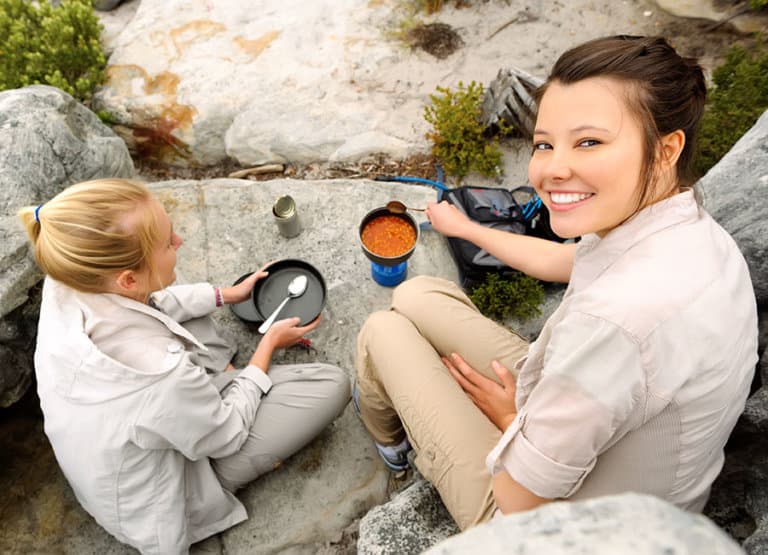


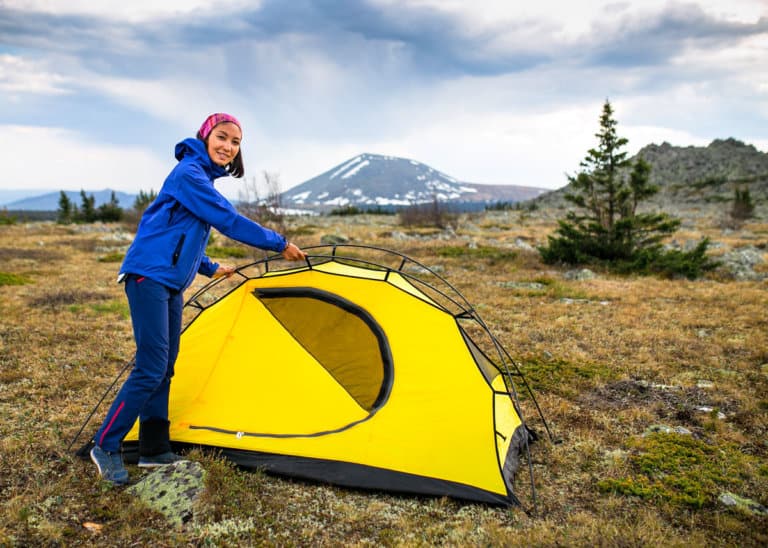


I never saw Chiggers mentioned. They arrive in Texas and other states for about 3 months starting in May. I am or used to be an avid gardener until their nasty bites cause itching and sleepless nights so I stopped going to my garden. I am allergic and need to find a repellent for them. You cannot see these little biters.